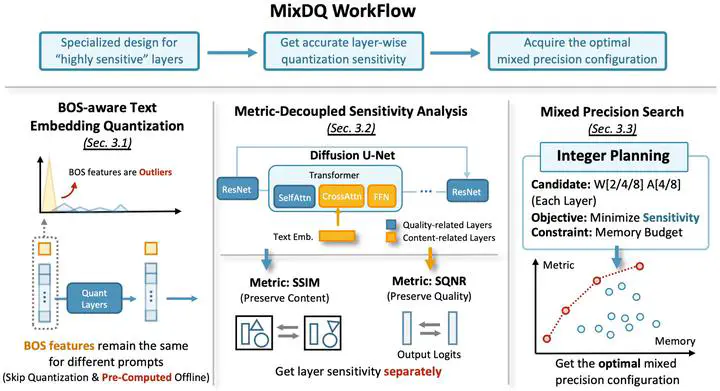[ECCV24] MixDQ: Memory-Efficient Few-Step Text-to-Image Diffusion Models with Metric-Decoupled Mixed Precision Quantization
 Image credit: Unsplash
Image credit: UnsplashAbstract
Diffusion models have achieved significant visual generation quality. However, their significant computational and memory costs pose challenge for their application on resource-constrained mobile devices or even desktop GPUs. Recent few-step diffusion models reduces the inference time by reducing the denoising steps. However, their memory consumptions are still excessive. The Post Training Quantization (PTQ) replaces high bit-width FP representation with low-bit integer values (INT4/8) , which is an effective and efficient technique to reduce the memory cost. However, when applying to few-step diffusion models, existing quantization methods face challenges in preserving both the image quality and text alignment. To address this issue, we propose an mixed-precision quantization framework - MixDQ. Firstly, We design specialized BOS-aware quantization method for highly sensitive text embedding quantization. Then, we conduct metric-decoupled sensitivity analysis to measure the sensitivity of each layer. Finally, we develop an integer-programming-based method to conduct bit-width allocation. While existing quantization methods fall short at W8A8, MixDQ could achieve W8A8 without performance loss, and W4A8 with negligible visual degradation. Compared with FP16, we achieve 3-4x reduction in model size and memory cost, and 1.45x latency speedup. Project Page https://a-suozhang.xyz/mixdq.github.io/
Add the publication’s full text or supplementary notes here. You can use rich formatting such as including code, math, and images.